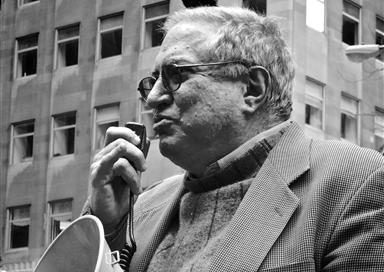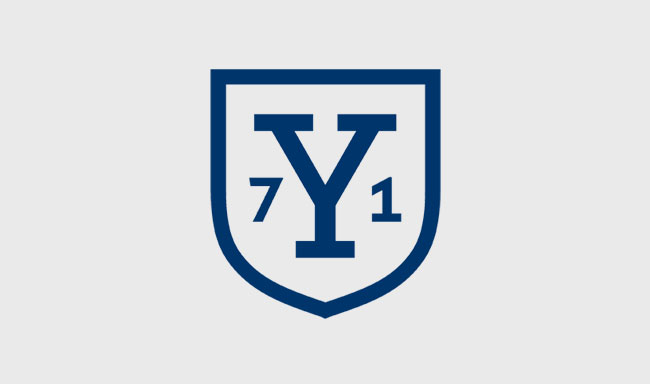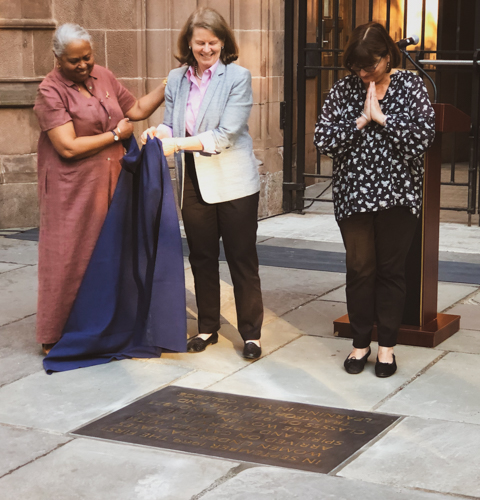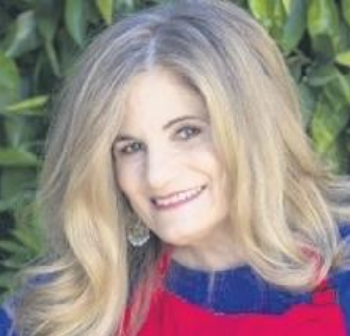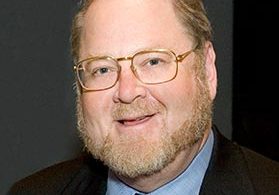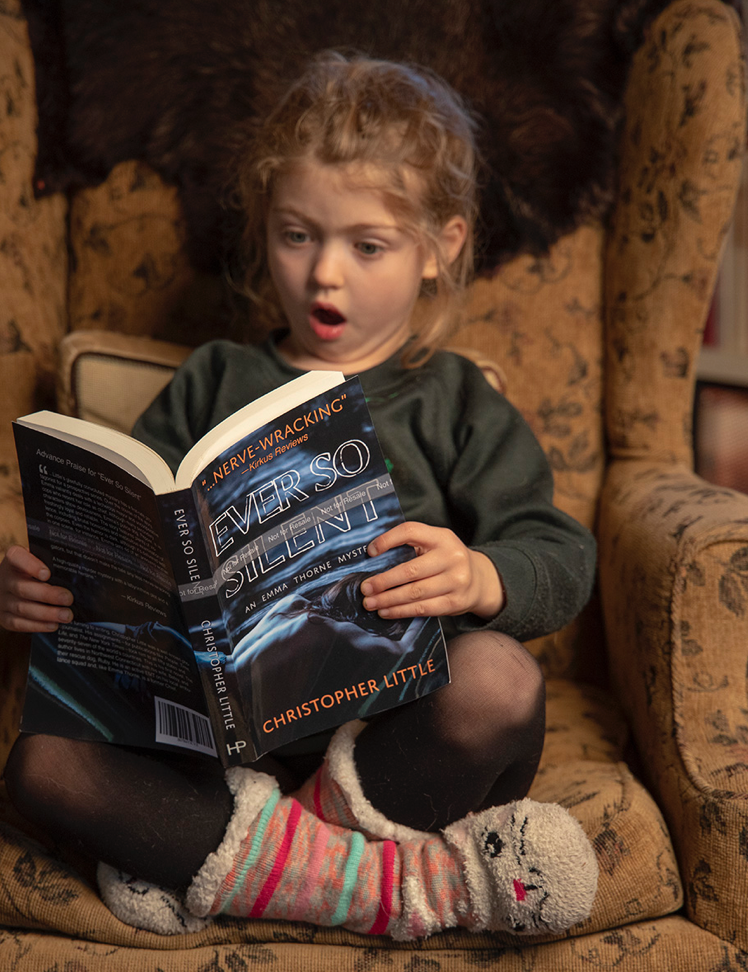Jim Kaplan Featured on NYC History Podcast
Check out Jim's fascinating account of the Wall Street bull statue:
https://soundcloud.com/obudmore/extra-edition12-jim-kaplanthe-historians
News from Richard Skolnick
Richard Skolnick writes:
Richard and Sophia Skolnik live in White Rock, NM, the sister town of Los Alamos. Richard continues to guest teach several times a year at Yale and is formally advising Yale grad students in public health. He also maintains his massive online course for Yale/Coursera, Essentials of Global Health, (https://www.coursera.org/learn/essentials-global-health). Over 5,000 new learners enrolled in the course in the last two weeks. The fourth edition of Richard's textbook, Global Health 101, was published in October 2019 and remains the best-selling textbook in its field worldwide. Richard has been deeply involved with advocacy work on COVID-19 within New Mexico, writing a weekly column for the Los Alamos Daily Post. His last article followed a Yale webinar on Leadership in Times of Crisis: https://ladailypost.com/skolnik-leadership-in-the-age-of-covid-19/. Richard's daughter, Rachel is deeply involved in school health in Los Alamos and his son, Aaron, is an ICU physician at the Mayo Clinic in Scottsdale. Richard spends much as much time as possible with his grandchildren, two of whom live a mile away, and his wife, Sophia, is the most devoted grandmother in the world.
50th Reunion Planning Underway - June 2021
Reunion co-chairs Lupi Robinson and Bob Bruner write:
Planning is underway for what promises to be a memorable 50th, to be held early June 2021 (date coming soon). Our class includes men and women who have made major contributions in their fields. We hope to hear from some of them during the class program. Chairs Bob Bruner (SYC) and Lupi Robinson (DC) report that Bill Porter has signed on as overall chair of recruiting, Kurt Schmoke has agreed to serve as chair of the Program Committee. Jay Gitlin has signed on as Editor in Chief of the Class Book. Tim Powell will continue as our class Tech Czar and Rick Cech has volunteered for the class survey. Thanks to all of them and to classmates who have agreed to serve as college recruiting captains. Expect to hear more in the New Year!
Karen Lawrence has graciously offered to host a Southern California pre-reunion event at The Huntington Library and Gardens in October. Plans are underway for a pre-reunion gathering in the DC area in the Spring. We are looking for someone to host a third regional gathering in the Chicago area. It takes a whole class to pull this off and we are looking for more volunteers—especially those with writing and editing talents for our class book as well as classmates to join the teams planning our regional gatherings. If you are interested in helping please contact us at reun71@gmail.com. We need you!
To get you in the mood for the big event, Shad Dabaghi, recruiting captain for Trumbull, has suggested the following pre-reading:
-
- The Game (Colt)
- Skull and Keys (Richards)
- Yale Needs Women (Perkins)
- Yale: a History (Kelley)
On Breaking the Gender Barrier at Yale—50 Years Later
Reprinted from MS. by kind permission of the publisher.
10/1/2019 by SHELLEY FISHER FISHKIN
I entered Yale College in September 1969, one of the first group of women who transformed Yale from the all-male institution it had been for the previous 268 years. When I returned to New Haven in September, 2019 to celebrate the 50th anniversary of coeducation, I learned that I never should have gotten in.
On Friday, September 20th after a dinner for Yale’s first women graduates, Henry “Sam” Chauncey, Jr.—who, as special assistant to Yale President Kingman Brewster had been responsible with Elga Wasserman, chair of the Committee on Coeducation, for crafting the plan to admit women to Yale—shared with the group of us that had returned after 50 years the instructions given to the Admissions Committee in November 1968: Look for women who have four brothers, and if not four, then three; they would be the most likely to be able to cope with being surrounded by men in every aspect of their lives. Avoid admitting anyone who was an only child.
I was an only child. Somehow I’d managed to slip through.
One week after a massive demonstration of Yale students’ support of coeducation in the fall of 1968, Kingman Brewster announced that Yale would admit women as undergraduates in the fall of 1969. Preparations were rushed and sometimes chaotic. Richard Brodhead, a graduate student at the time (who would soon teach at Yale and then go on to be Dean of Students there and later President of Duke University) noted at one of the sessions this weekend that the idea of admitting women to Yale had gone from “unthinkable” to “mandatory” without passing through the phase of “reflection.”
In September 1969, 575 women showed up to break the gender barrier at Yale College whether the institution was ready for them or not. Fifty years later, on September 19-22, 2019, some 250 of those women returned to Yale to look back, take stock and celebrate.
Chauncey, who had somehow been convinced that women preferred bathtubs to showers, had fretted that there was only one bathtub on the Yale campus. He knew they couldn’t do anything about that. But nobody seems to have noticed—before the women arrived—that there were only a handful of women’s restrooms in classroom buildings, a constant source of frustration and discomfort that all of the First Women at the 50th anniversary recalled. It had also not occurred to anyone to install locks on the women’s rest rooms in the colleges. They would be installed across the campus only after a woman on my hall fended off an attack from two non-students with switchblades while she was taking a shower.
While Chauncey had been worrying about the lack of bathtubs, Wasserman—always pithy and prescient—knew deep down that “the whole damn ballgame” would have to change, as she once put it. History would prove her right.
The women’s movement, which had begun to spark some changes in the curriculum at many state schools, had, for the most part, not reached Yale yet; very few women appeared on the syllabi in my classes. And even fewer appeared in person in front of the class: I had only one female professor during my time at Yale—someone who was on loan from a local Catholic women’s college.
The 50th Anniversary Commemorative Weekend marked the first time that women who entered Yale in 1969 (some as transfer students from other colleges—like myself—and some as freshmen) had come together in one place at one time. Although 575 of us had shown up in September, 1969, there had been no occasion during our time at Yale when we were all brought together. (Ten years ago, I had the chance to ask Elga Wasserman whether anyone had ever considered having an event at which those first women students could meet each other. No, she said, it hadn’t occurred to us.)
Indeed, a theme running through the anniversary weekend—particularly among those of us who had transferred— was how difficult it had been for women to meet each other during the first years of coeducation. In the fall my first year at Yale, when I saw a poster advertising tryouts for a Slavic Women’s Chorus, inexplicably I showed up, auditioned and joined. Only years later did I figure out why: to be in a room full of women at Yale in 1969, I had to learn to sing in Bulgarian! (Meeting other women had been easier for the 230 women who arrived as freshmen in 1969, most of whom lived together in one dormitory. The 345 of us who came as transfers were divided up among Yale’s twelve residential colleges, with fewer than thirty of us in any one college—each of which held approximately 350 men.)
The fact that most of the September 2019 50th Anniversary Celebration was open only to women who had arrived at Yale College in 1969 and graduated in 1971 (my class), 1972 or 1973 lent a special sense of intimacy to the occasion, as women shared their memories of those early years and compared notes. A transfer from a girls’ high school and woman’s college who had been taught to not put herself forward told the story of a male friend who coached her to speak up for herself when she had been overlooked for a position on the Yale Daily News. There were recollections of activism and organizing: the October Moratorium, the November March on Washington, that night in December when our male friends all found out their number in the draft lottery; demonstrating alongside local welfare moms protesting cuts in their benefits, and supporting a dining hall worker strike; and the three days known as “May Day” when Yale opened the college gates to thousands of students from around the country and served vast quantities of familia (a granola/muesli blend) to them as they protested the war abroad and racism at home.
Less publicly, in quiet conversations between the sessions and late at night, there was talk of husbands, children and grandchildren; of professional triumphs and traumas; of health challenges survived and those still to be met; of unrealized dreams and cruel strokes of fate; of pivots and self-reinvention; of love and of loss.
Many commented on how thrilled we had been to get that letter admitting us to Yale in the spring of 1968—and of how intimidating it had been to read the article by Jonathan Lear in the New York Times around that time describing us as “female versions of Nietzsche’s ubermensch.” Each of us knew we weren’t a “superwoman”— but suspected that the other women who would enter with us would be. Each of us also showed up knowing that we would do our best to do Yale proud.
As many noted over the 50th anniversary weekend, however, it was more than the relative lack of women’s restrooms, women faculty and women on our syllabi that led us to feel marginalized.
Although many faculty had made us feel welcome and valued in their classrooms, others were on a rather steep learning curve. Saturday morning of the 50th anniversary weekend, several women recalled preposterous questions that had been directed to them in class. “So, what is the female point of view about photosynthesis?” one was asked. Another had been requested to offer “the woman’s view of Pascal.” One woman, tired of questions of this nature, decided to have some fun the next time one came up. When her professor asked her for the “woman’s perspective on the Odyssey,” she responded that the Sirens weren’t trying to lure Odysseus off course at all: they were just a group of women singing together and enjoying themselves, and if their songs had a mesmerizing effect on Odysseus it wasn’t their fault!
At a panel on Saturday afternoon, Richard Brodhead confessed to not having thought out what difference it might make having women in the classes he taught at Yale that first year. It was not until he read aloud in class the following lines from Alexander Pope’s canonical 1743 “Epistle II: To a Lady on the Characters of Women” that he had assigned that he realized how offensive it would sound to women in his class—and how offensive it should sound to the men: “Nothing so true as what you once let fall, ‘Most Women have no Character at all.’” He had never paid attention to the misogyny the line embodied before he’d had to read it aloud in front of women students.
Word got around, our first year at Yale, that the previous fall, entering students in the last all-male freshman class had been greeted with an edition of The Eli Book, an orientation pamphlet, that contained the following advice: “Treat Yale as you would a good woman. Take advantage of her many gifts, nourish yourself with the fruits of her wisdom, curse her if you will, and congratulate yourself for the possession of her. But treat her with respect. When you leave her, as you ultimately must, profit from the education that she has given you.”
Many of us recalled being puzzled to learn that the social activities fees we paid in our residential colleges were being used solely to pay for busing women to Yale from Vassar, Smith and other women’s colleges. Athletes in our ranks were surprised to find that there were no women’s sports teams of any kind.
One classmate recalled that the presence of women students at Yale made an older male alum back for his reunion in 1970 livid: “He told me how unwelcome I was. All you’ll do is find a husband,” he fumed. “You’re taking the place of one of the 1000 male leaders.” Although his math was incorrect—women had been added to the “1000 male leaders” admitted that year, the cause of the great overcrowding the university faced—his response was not uncommon.
During my first year at Yale as part of a story I was writing as a stringer for the New York Times, I phoned the Chairman of the Board of Mory’s, a private campus eatery in which university business was often conducted over lunch and dinner. I asked him why Mory’s still refused to admit women as members after Yale College had admitted them as students. He hung up on me.
Senior year I knocked on an English professor’s door to request an application to be a Carnegie Teaching Fellow. He glared at me coldly and then said, “I think ‘female fellows’ is an oxymoron, don’t you?” “No,” I responded, silently seething. Discouraged, I decided to tear up the application. But before I did, I mentioned the exchange to A. Bartlett Giamatti, then master of my college and always wonderfully supportive. His anger was palpable. “You turn in that application!” he thundered. I did. I got the fellowship and began teaching freshman English at Yale the fall after graduation—a member of the first group of women to be named Carnegie Teaching Fellows at Yale.
For many of the Yale women who arrived in 1969 who were members of racial minority groups, dealing with demeaning prejudice, discrimination, and exclusion wasn’t a new experience. And, truth be told, it wasn’t really a new experience for any of us, reared as we were in an America in which women were stereotyped and objectified in advertising and popular culture, and in which we were offered fewer opportunities for advancement than our male peers (as well as lower pay) in virtually every profession. But making a place for ourselves in an institution that had excluded people like us—women—for all 268 years of its existence shaped all of us in profound ways that we may only be beginning to understand.
Sam Chauncey had said early on that Yale had been looking for women with “a certain toughness, a pioneer quality.” If we hadn’t had those qualities before we came, we acquired them in the process of coeducating Yale.
Yale both marginalized and empowered us. We were forced to demand our rightful place in physical and social spaces that had denied us entry for centuries. We knew we belonged at Yale as much as any male student, but also knew that the institution was a long way from figuring out what that meant. There was a kind of self-confidence that we acquired just by virtue of getting in, showing up, being ourselves, and playing a role in tearing down antiquated barriers that deserved to be demolished. We left with memories of the marginalization we challenged and we left with the power that a Yale College degree conferred.
The First Women who returned for the anniversary celebration marveled at the collection of talented, strong, accomplished women who were part of this unique “granfalloon” (as Kurt Vonnegut, Jr. might have put it). Our ranks included college presidents; a Congresswoman; and founders and heads of nonprofit foundations devoted to the environment, the future of cities, literacy, health and human rights; holders of endowed professorships at leading universities; the first woman to preach in Westminster Abby; past or current presidents of the American Academy of Arts and Letters, the American Anthropological Association, the American Studies Association, and the Huntington Library; a prominent cancer researcher; women responsible for the creation of two national parks; the Chief Global Affairs correspondent for the PBS NewsHour; a prize-winning journalist who covered wars in El Salvador, Guatemala, and Nicaragua; authors or editors of hundreds of books; actors, architects, poets; lawyers, doctors, judges, playwrights, surgeons, TV producers and community leaders; and proud mothers of feminists—feminist sons as well as daughters.
Speaking personally, breaking the gender barrier at Yale helped make me attuned to the absurdity and illogic of other exclusionary barriers as well—such as those based on race, or ethnicity, or nationality—and helped me develop a compulsion to work to dismantle them.
Indeed, being in the first class of women at Yale College taught me a key lesson that has informed every stage of my career ever since: paradigms exist to be challenged.
Breaking down the paradigm that assumed that Yale was and always would be a male institution gave me a taste for paradigm-smashing that would serve me well as a scholar. In my book, Was Huck Black? Mark Twain and African American Voices (1993), I challenged the segregated paradigm dominating literary history that assumed that white writers came from white literary ancestors and black writers came from black ones. I continued to chip away at this paradigm over the decade that followed in pieces like “Interrogating Whiteness, Complicating Blackness, Remapping American Culture” (1995), “The Multiculturalism of ‘Traditional Culture’” (1995); “Reclaiming the ‘Black’ Presence in Mainstream Culture” (2001); and “Desegregating American Literary Studies” (2002).
Then in 2004, in “Crossroads of Cultures: The Transnational Turn in American Studies,” my Presidential Address to the American Studies Association, I challenged the paradigm that one could study the United States adequately by paying attention only to scholarship published by American scholars. I argued that the U.S. was a crossroads of cultures and that we ignored transnational perspectives at our own risk.
Challenging the nation-based paradigm in American Studies over the next fifteen years led me to work to internationalize the American Studies Association, raising funds to bring scores of scholars from around the world to our meetings, and led me to co-found the Journal of Transnational American Studies, an online, open-access peer-reviewed journal now in its 10th year. It also set in motion a distinctive and unexpected trajectory for me as a scholar, leading me to co-direct a major collaborative transnational research project involving over 100 scholars worldwide (the Chinese Railroad Workers in North America Project at Stanford), and to keynote conferences in Basel, Beijing, Cambridge, Coimbra, Copenhagen, Cork, Guangzhou, Hong Kong, Hyderabad, Kolkata, Kunming, Kyoto, La Coruña, Lisbon, Mainz, Nanjing, Regensburg, Seoul, St. Petersburg, Taipei and Tokyo.
Being in the first class of women at Yale taught me that disrupting centuries-old beliefs and traditions can be challenging and exhilarating—that breaking down long-accepted paradigms can be both crucial and fruitful; that doing so can usher in new approaches to life and learning, and can make the world a more just—and more interesting— place.
Being a part of that adventure helped make me unafraid to innovate, instigate and embrace transformative change. Those were stances toward the world that many of my classmates clearly shared—as became clear not only from conversations over the course of the weekend, but also from excerpts from their oral and written histories that Yale has been collecting.
The lively Commemorative Program Saturday afternoon featured performances by current members of Yale’s first all-women a capella groups, the Slavic Women’s Chorus and the New Blue, along with evocative songs by other current Yale singers; excerpts from the over 100 video oral histories of First Women that Yale gathered; and video and spoken-word tributes by current Yale women to the women who broke the gender barrier at Yale in 1969. After that, poet and Mellon Foundation President Elizabeth Alexander ’84 offered some compelling comments on the unexpected ways in which revolution and evolution can be linked—comments that underlined connections between the experiences of women at Yale today with those of the “pioneers” who came back for this special weekend.
Yale President Peter Salovey unveiled a permanent commemorative stone at the entry to the Old Campus at Phelps Gate engraved with the following words:
“In September 1969, the first women undergraduates arrived on campus. With spirit and determination, these women of the classes of 1971, 1972, and 1973 transformed life and learning in Yale College.”
The weekend closed with a memorial service on Sunday recalling First Women who were no longer with us.
In addition to commemorating the 50th anniversary of women in Yale College, Yale is also commemorating the 150th anniversary of women at Yale, noting that the first two woman to enroll at the university entered the Yale School of Art 150 years ago when it first opened. Yale’s commemorations of its First Women will continue all year with the continuing collection of oral and written histories and archival materials as well as the presentation a series of lectures and exhibits.
"First Women" of Yale Celebrated in Stone
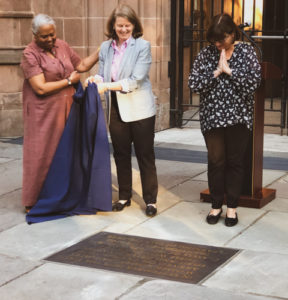
Vera Wells writes:
I had the honor of unveiling the commemorative Threshold Stone at the entrance of Phelps Gateway on Old Campus, in celebration of being one of the “First Women” at Yale College in September 1969.
Also pictured: (center) Eve Hart Rice’73, Chair of 50th Anniversary of Women at Yale College Committee and Co-Chair of 50WAY150 Steering Committee and (right) Carol Whitehead’72.
For more on this event, see https://news.yale.edu/2019/09/23/yale-colleges-first-women-gather-campus-weekend-events.
UPDATE: For a terrific summary of events from 1971's own Shelley Fisher Fishkin, see this article from MS.
Photo by Andrea DaRif '73.
Thanks from all of us, Vera, for representing the Class of 1971 at this milestone event!
A Celebration of Darryle Pollock's Life
Alice Young writes:
I wanted to share some photos taken at Darryle Pollock’s celebration of life last week [late August] in LA, a few days before what would have been her 70th birthday. Jean Brenner, Priscilla Lundin, Deborah Rothman, Scott Carde and I from ‘71 and Mary Carde and Tom Shortall from ‘72 attended.
Best to all,
Alice

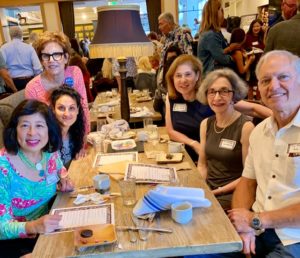
Rothman to Royal Society
From the June/July 2019 issue of Medicine@Yale:
"James Rothman, PhD, chair and Sterling Professor Cell Biology, and professor of chemistry [in addition to being Yale College 1971 BR], has been named to the Royal Society. a fellowship of many of the world's most eminent scientists, and the oldest scientific academy in continuous existence. He is one of seven foreign members announced in April. Rothman shared the 2013 Nobel Prize in Physiology or Medicine for his work on how molecular messages are transmitted inside and outside of our cells."
Congratulations, Jim!
News from Christopher Little
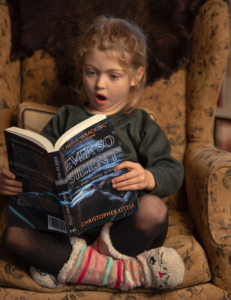 Having retired from photojournalism after many assignments and great fun, I've turned to fiction in my dotage. My debut novel is out at last. Ever So Silent: An Emma Thorne Mystery can be found at http://bit.ly/EverSoSilent, should you be interested (review appreciated). Kirkus Reviews called the book "... nerve-wracking. A high-quality murder mystery with a labyrinthine plot and a memorable heroine." Greg Schmidt (who is married to Jenny Lyman '72) wrote: "Fine New Cop on the Block. Welcome Emma Thorne to the pantheon of small town cops who punch above their weight. And welcome Christopher Little to the club of those who craft self-assured, well-researched procedurals with characters whose fate you care about (which includes both compellingly flawed good guys and evil creeps). Little clearly knows his territory - decaying small town New England - and paces the introduction of technical and historical and cultural nuggets so that they contribute to and don't digress from the rollicking and suitably twisty plot. Hard to believe this is Little's first mystery. Hope we see another Emma Thorne installment soon."
Having retired from photojournalism after many assignments and great fun, I've turned to fiction in my dotage. My debut novel is out at last. Ever So Silent: An Emma Thorne Mystery can be found at http://bit.ly/EverSoSilent, should you be interested (review appreciated). Kirkus Reviews called the book "... nerve-wracking. A high-quality murder mystery with a labyrinthine plot and a memorable heroine." Greg Schmidt (who is married to Jenny Lyman '72) wrote: "Fine New Cop on the Block. Welcome Emma Thorne to the pantheon of small town cops who punch above their weight. And welcome Christopher Little to the club of those who craft self-assured, well-researched procedurals with characters whose fate you care about (which includes both compellingly flawed good guys and evil creeps). Little clearly knows his territory - decaying small town New England - and paces the introduction of technical and historical and cultural nuggets so that they contribute to and don't digress from the rollicking and suitably twisty plot. Hard to believe this is Little's first mystery. Hope we see another Emma Thorne installment soon."
I trust this finds everyone well. My wife of forty years, Betsy, and I live in Northwest Connecticut. I still cut down our firewood and do the things country-folk do. And I am still a volunteer EMT and former chief on our local ambulance squad. I rarely get into my birth city, New York. We live a few miles from my only daughter, Eliza (Yale Forestry and Yale Public Health), her Canadian sculptor husband, Bevan, and their brilliant five-year-old daughter, Charlotte (seen here reading a proof copy). To all of you, I send my very best. Finally, thanks dedicated 71ers for this fine website.
Darryle Pollack - 1949-2019
Doreen Gluckin passes along this sad news:
Andy,
It is with a very heavy heart that I am forwarding this obituary to you. Darryle was, as Steve Cushner commented on Facebook recently, “one of the most beloved members of our class since her first day in New Haven”.
I feel that the world seems smaller and less colorful without Darryle and her positive energy in it. Her charm, smile and yes, her amazing hair, will be sorely missed. But I am grateful that I knew her and thankful that she had so many “extra” years after her breast cancer. May her memory be for a blessing.
With warm regards,
Doreen
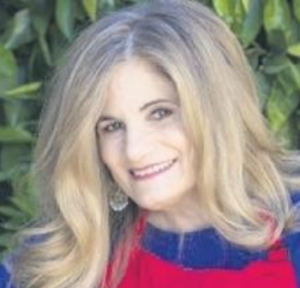 POLLACK, DARRYLE Born August 19, 1949, died peacefully at home in Los Angeles, surrounded by family on May 25, 2019, after a lifetime defined by creativity, storytelling, bravery, laughter and love. Darryle was born in Miami Beach, Florida, the eldest child of Irving and Marcella Pollack, and grew up in the resort city with an intellectual and creative bent encouraged by her parents. She attended Cornell for two years before transferring and graduating from Yale in the first class that included women. Darryle worked on George McGovern's presidential campaign before she returned to Miami to begin a career in journalism. She was a pioneer in women's reporting and worked as a news anchor for CBS station WTVJ-Miami (and later for KCBS-Los Angeles). During a television interview in Miami, Mel Brooks found out she was single, and suggested she go on a date with Brooks' manager, Howard Rothberg. Shortly thereafter, Darryle married Howard and moved to Los Angeles, where they had two children: Alison ("Alice") (b. 1984) and Daniel (b. 1988). After her divorce, she married Vaughn Feather in 1994, and relocated with her children to Carmel, California, where she lived for the next 19 years. After battling and defeating breast cancer, Darryle became an outspoken advocate for cancer survivors. An extremely talented and avid writer, Darryle wrote various publications, including a blog and book, both titled "I Never Signed Up For This," and chronicled her life as a breast cancer survivor in a thoughtful, inspiring and humorous way. Darryle remained an active leader, writer and speaker for the cancer community for her entire life. She was the lead-plaintiff in a lawsuit related to the Springer cancer vaccine (to which she attributed her cancer survival, and was the subject of her ongoing book project). Darryle found refuge from cancer in art, and she developed into an accomplished painter and mosaicist. She considered her work with mosaics a metaphor for how she reassembled the broken pieces of her life into a beautiful new creation. Almost 25 years after her initial breast cancer diagnosis, she was diagnosed with pancreatic cancer, which was the cause of her death. Darryle's countless stories, publications and speeches - including her TedX Talk, blog and book - can be found easily on the internet, but she always considered her children to be her greatest accomplishment. Darryle is survived by her two children (Alice and Daniel), her husband (Vaughn), her sister (Carla), brother (Josh), her brother-in-law (Paul), many extended family members, and countless friends. A private service has been planned for family with a larger celebration of Darryle's life to follow, closer to what would have been her 70th birthday. Donations can be made in her name to The Carol Hatton Memorial Fund for Women in Need.
POLLACK, DARRYLE Born August 19, 1949, died peacefully at home in Los Angeles, surrounded by family on May 25, 2019, after a lifetime defined by creativity, storytelling, bravery, laughter and love. Darryle was born in Miami Beach, Florida, the eldest child of Irving and Marcella Pollack, and grew up in the resort city with an intellectual and creative bent encouraged by her parents. She attended Cornell for two years before transferring and graduating from Yale in the first class that included women. Darryle worked on George McGovern's presidential campaign before she returned to Miami to begin a career in journalism. She was a pioneer in women's reporting and worked as a news anchor for CBS station WTVJ-Miami (and later for KCBS-Los Angeles). During a television interview in Miami, Mel Brooks found out she was single, and suggested she go on a date with Brooks' manager, Howard Rothberg. Shortly thereafter, Darryle married Howard and moved to Los Angeles, where they had two children: Alison ("Alice") (b. 1984) and Daniel (b. 1988). After her divorce, she married Vaughn Feather in 1994, and relocated with her children to Carmel, California, where she lived for the next 19 years. After battling and defeating breast cancer, Darryle became an outspoken advocate for cancer survivors. An extremely talented and avid writer, Darryle wrote various publications, including a blog and book, both titled "I Never Signed Up For This," and chronicled her life as a breast cancer survivor in a thoughtful, inspiring and humorous way. Darryle remained an active leader, writer and speaker for the cancer community for her entire life. She was the lead-plaintiff in a lawsuit related to the Springer cancer vaccine (to which she attributed her cancer survival, and was the subject of her ongoing book project). Darryle found refuge from cancer in art, and she developed into an accomplished painter and mosaicist. She considered her work with mosaics a metaphor for how she reassembled the broken pieces of her life into a beautiful new creation. Almost 25 years after her initial breast cancer diagnosis, she was diagnosed with pancreatic cancer, which was the cause of her death. Darryle's countless stories, publications and speeches - including her TedX Talk, blog and book - can be found easily on the internet, but she always considered her children to be her greatest accomplishment. Darryle is survived by her two children (Alice and Daniel), her husband (Vaughn), her sister (Carla), brother (Josh), her brother-in-law (Paul), many extended family members, and countless friends. A private service has been planned for family with a larger celebration of Darryle's life to follow, closer to what would have been her 70th birthday. Donations can be made in her name to The Carol Hatton Memorial Fund for Women in Need.2018 AYA Assembly Report from Class Rep Jean Brenner
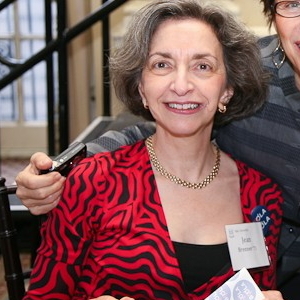 I was delighted to represent our class at the AYA Assembly/Yale Alumni Fund Convocation in New Haven on November 8-9, 2018. The other classmates I encountered during the gathering were Steve Cushner, Andy Sherman, KathyMurphy and Glenn Murphy. This year’s theme was “Science at Yale: Shaping the Future.”
I was delighted to represent our class at the AYA Assembly/Yale Alumni Fund Convocation in New Haven on November 8-9, 2018. The other classmates I encountered during the gathering were Steve Cushner, Andy Sherman, KathyMurphy and Glenn Murphy. This year’s theme was “Science at Yale: Shaping the Future.”
The Assembly & Convocation began with introductory remarks by President Salovey providing an overview of the theme of the gathering. Two years ago, Yale determined that the sciences are fundamental to its mission of educating leaders and improving the world. At that time, President Salovey and the provost charged the University Science Strategy Committee (the “USSC”) with identifying the most promising opportunities for investment across the sciences. The USSC identified five top-priority areas: (1) integrative data science and its mathematical foundations, (2) quantum science, engineering, and materials, (3) neuroscience, (4) inflammation science, and (5) environmental and evolutionary sciences. In addition, the USSC recommended four areas for cross-cutting investment that would support all STEM fields. These were (1) graduate student support, (2) diversity across the STEM pipeline, (3) instrumentation development, and (4) core facilities.
President Salovey mentioned several facility advancements around campus, including the renovated Sterling Chemistry Lab, the Greenberg Engineering Teaching Concourse, and the new Yale Science Building. He also emphasized the importance of the arts and humanities in a Yale education. As part of an effort to bring the arts to the rest of campus and to encourage collaboration between the arts and the sciences, Yale has undertaken a major renovation of the former Hall of Graduate Studies, which will provide a central home for the humanities, including classrooms and a shared screening room. Salovey noted that while the renovation hasn’t yet been completed, there are already cross-discipline projects underway.
The next item on the agenda was a panel discussion among four members of the USSC about their process for determining their recommendations. They also gave some examples of the leading-edge research happening in the priority areas. Completing the morning’s programs was a panel discussion among deans of the Faculty of Arts and Sciences, the Yale School of Medicine, the Graduate School of Arts and Sciences, and the Yale School of Public Health.
The afternoon was devoted to break-out sessions on a variety of science-related topics. I learned about inflammation and ethical issues arising in the study of human genetics, both fascinating topics.
There were various workshops scheduled for the next morning. I attended the one for Yale College Classes, where a good deal of the conversation was about effective use of social media for maintaining contact with classmates. Don’t forget our class page, yale71.org!
-- Jean Brenner, Class of 1971 AYA Representative

